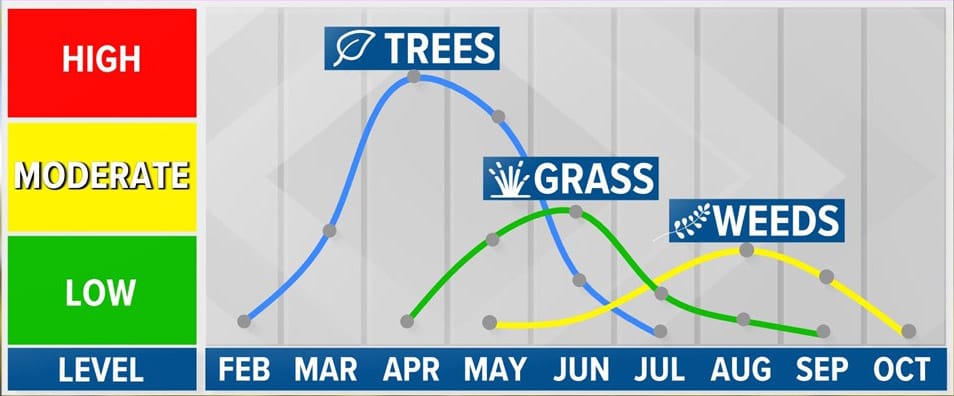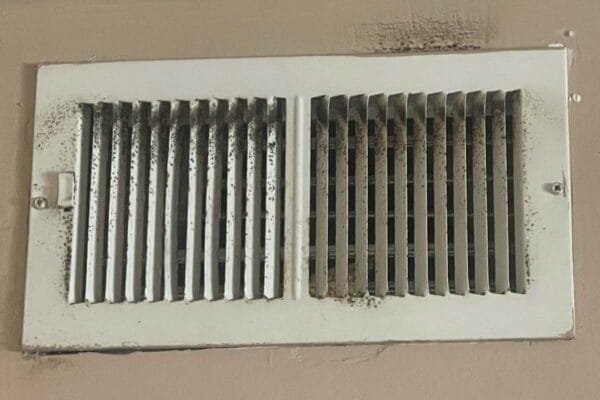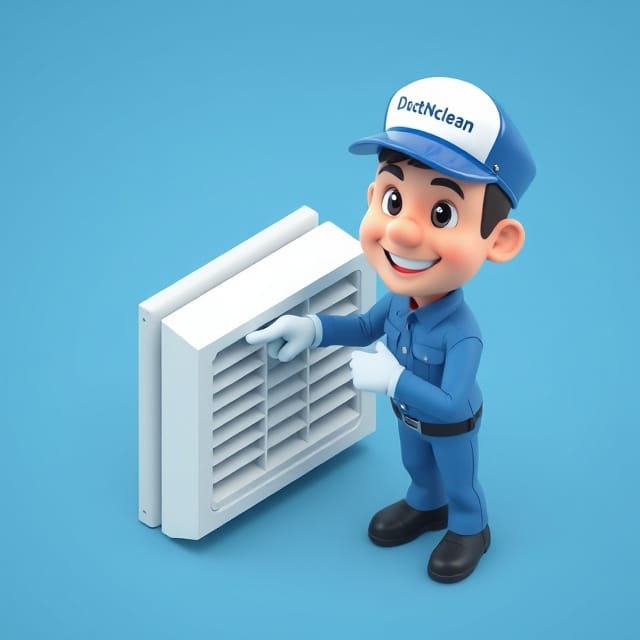When it comes to maintaining healthy indoor air quality in the Triangle area, establishing the right duct cleaning schedule Raleigh homes need is crucial. Wake County’s unique environmental conditions—from high pollen counts to humid summers—create specific challenges that affect how frequently your home’s air ducts need professional attention. Whether you’re in downtown Raleigh, the growing suburbs of Wake Forest, or the family-friendly neighborhoods of Cary and Apex, understanding your local cleaning needs will help you maintain both your HVAC system’s efficiency and your family’s health.
At DuctNClean, we’ve been helping Triangle area homeowners navigate these local challenges for years. Our trusted air duct cleaning in Raleigh services address the specific needs of homes throughout Wake County, ensuring your air ducts stay clean and your HVAC system runs efficiently year-round.
1. Understanding Air Duct Cleaning Frequency: More Than Just General Guidelines
Most national recommendations suggest cleaning air ducts every 3-5 years, but this general timeframe doesn’t account for the unique environmental factors that affect the duct cleaning schedule Raleigh homes require. Wake County’s climate, vegetation, and rapid development create conditions that often require more frequent attention to your home’s air circulation system.
The Standard Duct Cleaning Schedule for Most Homes
For typical homes in the Triangle area without special circumstances, a baseline duct cleaning schedule Raleigh homes should follow would be:
- Every 3-4 years: Homes with minimal environmental stressors
- Every 2-3 years: Homes with moderate exposure to local environmental factors
- Every 1-2 years: Homes with high exposure to allergens, pets, or other contamination sources
However, these timelines can shift significantly based on your specific location and circumstances within Wake County.
The National Air Duct Cleaners Association (NADCA) recommends inspecting ducts annually and scheduling cleaning every 3–5 years, or more frequently in homes with pets, allergies, or post-construction dust exposure
2. Local Environmental Factors That Affect Your Cleaning Schedule
Raleigh’s Notorious Pollen Seasons
The Triangle area is infamous for its intense pollen seasons, particularly during spring when oak, pine, and birch trees release massive amounts of pollen into the air. This yellow dust doesn’t just coat your car—it infiltrates your home’s HVAC system, accumulating in ducts and reducing air quality.
Neighborhoods with heavy tree coverage—such as North Hills, Cameron Village, and areas near Umstead State Park—experience particularly high pollen loads. If your home is in one of these leafy neighborhoods, you may need to adjust your cleaning schedule to every 2-3 years instead of the standard 3-5 year recommendation.

The best time of year for duct cleaning in Raleigh is typically late fall or early winter, after the fall pollen season has ended but before you rely heavily on your heating system.
Wake County’s Humidity Challenges
Summer humidity levels in the Triangle regularly exceed 70%, creating ideal conditions for mold and mildew growth within air duct systems. This is particularly problematic in larger homes or properties with shaded duct runs, where moisture lingers and allows contaminants to spread. If you’re dealing with recurring musty odors or visible spots, our professional HVAC mold treatment services help identify and eliminate the source before it worsens.
- Homes near Jordan Lake or Falls Lake
- Properties in low-lying areas of West Raleigh
- Older homes with less efficient moisture control systems
High humidity doesn’t just make your home uncomfortable—it can turn your air ducts into breeding grounds for harmful microorganisms. Homes in particularly humid areas should consider cleaning every 2-3 years to prevent mold-related health issues.
Construction and Development Impact
The Triangle’s rapid growth means construction dust is a constant concern. New developments in Wake Forest, ongoing projects in downtown Raleigh, and the continuous expansion in Cary and Apex all contribute to airborne particles that can infiltrate home air systems.
How often to clean air ducts Wake Forest residents should consider: If you live in or near new construction areas, plan for cleaning within the first year of occupancy, then every 2-3 years thereafter. The constant dust from nearby construction can significantly impact your indoor air quality.

3. Household-Specific Factors for Your Cleaning Schedule
Understanding the specific factors that affect your individual situation is essential for creating an effective duct cleaning schedule Raleigh homes need. These household-specific considerations can significantly impact how often your ducts require professional attention.
Pet Ownership and Dander Accumulation
Pet hair and dander are among the most common reasons for accelerated duct contamination. In the Triangle area, where many families have both indoor and outdoor pets, this becomes even more significant. Raleigh pet owners typically need cleaning every 2–3 years rather than following standard timelines.
Dogs that spend time outdoors bring in additional pollen and allergens, while cats contribute fine dander that can circulate through your system for months. Multiple pets or large breeds may require annual cleaning in some cases.
Allergy and Respiratory Considerations
Wake County’s high allergen load means that allergy sufferers in Raleigh may need more frequent cleaning than the standard recommendations. If family members experience:
- Seasonal allergies that seem to persist indoors
- Asthma symptoms that worsen at home
- Unexplained respiratory irritation
Consider moving to a 1-2 year cleaning schedule. This is particularly important for homes in high-pollen areas like neighborhoods near NC State’s campus or in the heavily wooded areas of North Raleigh.
For households managing persistent allergy symptoms, specialized duct cleaning for allergy sufferers in Raleigh addresses the specific allergen types — pollen, mold spores, and dander — that accumulate fastest in Triangle area ductwork.
Home Age and Ductwork Condition
Recommended duct cleaning frequency Cary NC varies significantly based on home age:
Newer homes (built after 2000): Every 3-4 years, unless near construction Homes built 1980-2000: Every 2-3 years due to aging ductwork Historic homes (pre-1980): Every 1-2 years, as older ductwork often has gaps that allow more contamination
Cary’s mix of newer developments and established neighborhoods means homeowners need to assess their specific situation. Older homes in established areas like MacGregor Downs or Lochmere may need more frequent attention than newer constructions in West Cary.
4. Geographic Variations Within the Triangle
Wake Forest Specific Considerations
Wake Forest’s location northeast of Raleigh puts it in the path of prevailing winds that carry pollen from the Research Triangle Park area. Additionally, the area’s newer developments often mean construction dust is a ongoing concern.
How often to clean air ducts Wake Forest: Most homes benefit from cleaning every 2-3 years, with newer homes near construction requiring attention within the first 18 months.
Apex and Southwest Wake County
Best time for duct cleaning in Apex aligns with the area’s specific environmental patterns. Apex’s location in the western part of Wake County means it often experiences different weather patterns, including increased humidity from Jordan Lake’s influence.
Apex homeowners should consider:
- Every 2-3 years for established neighborhoods
- Every 1-2 years for homes with lake proximity
- Annual inspection for homes with known moisture issues
Cary’s Unique Challenges
Cary’s rapid growth and mix of residential and commercial development create unique air quality challenges. The recommended duct cleaning frequency Cary NC depends heavily on your specific neighborhood:
Established areas (like Kildaire Farms or Preston): Every 3-4 years New developments (like Amberly or Carpenter Village): Every 2-3 years Areas near major roads (like homes near I-40 or NC-540): Every 2 years due to traffic-related pollutants
Homeowners in Wake Forest, Cary, and Apex often need more frequent cleanings due to local environmental conditions.
5. Recognizing When Your Schedule Needs Adjustment
Even with a planned cleaning schedule, certain signs indicate your ducts need immediate attention. Watch for these warning signs your Raleigh home needs duct cleaning:
Visual and Sensory Indicators
Dust accumulation: If you’re dusting weekly but surfaces become dusty again within days, your ducts may be circulating contaminated air.
Odors: Musty smells when your HVAC system starts up often indicate mold or mildew growth within the ductwork.
Visible debris: Check your air registers for visible accumulation of dust, pet hair, or other debris.
Performance Issues
Uneven temperatures: If some rooms are consistently warmer or cooler than others, blocked or dirty ducts may be restricting airflow.
Increased energy bills: A sudden spike in heating or cooling costs often indicates your system is working harder due to restricted airflow.
Frequent filter changes: If you’re changing your HVAC filter more often than every 3 months, your ducts may be contributing to system contamination.
Health-Related Signs
Worsening allergies: If family members experience increased allergy symptoms at home compared to other locations, contaminated ducts may be the culprit.
Respiratory issues: Unexplained coughing, sneezing, or breathing difficulties that improve when you’re away from home.
Sleep disturbances: Poor sleep quality due to congestion or breathing difficulties can sometimes be traced to poor indoor air quality.
6. Professional vs. DIY: Understanding the Difference

While homeowners can perform basic maintenance like changing filters and cleaning visible vent covers, professional duct cleaning involves specialized equipment and expertise that’s crucial for thoroughness and safety.
What Professional Cleaning Includes
Professional certified duct cleaning services experts use:
- High-powered vacuum systems that create negative pressure throughout the duct system
- Rotary brushes and agitation devices that dislodge stubborn debris
- Compressed air tools for detailed cleaning of hard-to-reach areas
- Antimicrobial treatments when mold or bacteria are present
The Importance of Local Expertise
Working with local professionals who understand Triangle area conditions is crucial. They know:
- Which neighborhoods are most affected by seasonal pollen
- How Wake County’s humidity patterns affect duct systems
- Local building codes and ductwork standards
- The best timing for cleaning based on regional weather patterns
7. Integrating Duct Cleaning with Overall HVAC Maintenance
Your duct cleaning schedule should coordinate with other HVAC maintenance activities. Duct cleaning as part of HVAC maintenance ensures optimal system performance and longevity.
Coordinated Maintenance Schedule
Annual tasks:
- Filter changes (every 1-3 months)
- HVAC system inspection
- Thermostat calibration
Bi-annual tasks:
- Coil cleaning
- Refrigerant level checks
- Electrical connection inspection
Multi-year tasks:
- Duct cleaning (based on your specific schedule)
- Ductwork inspection and sealing
- System component replacement as needed
Seasonal Considerations
Spring preparation: Before peak cooling season, ensure your system is clean and efficient.
Fall maintenance: After pollen season ends, clean ducts before relying on heating systems.
Winter monitoring: Watch for humidity issues that could lead to mold growth.
Summer vigilance: Monitor for signs of moisture accumulation during humid months.
8. Cost Considerations and Budgeting
Understanding the financial aspects of regular duct cleaning helps you plan effectively and avoid surprise expenses.
Factors Affecting Cleaning Costs
Home size: Larger homes with more ductwork require more time and materials.
Contamination level: Heavily contaminated systems may require additional services like antimicrobial treatment.
Accessibility: Difficult-to-reach ductwork may increase labor costs.
Additional services: Dryer vent cleaning, filter replacement, or minor repairs add to the total cost.
Long-Term Financial Benefits
Regular cleaning provides several financial advantages:
Energy savings: Clean ducts improve HVAC efficiency, reducing monthly utility bills.
System longevity: Proper maintenance extends your HVAC system’s lifespan, delaying expensive replacement costs.
Health savings: Better indoor air quality can reduce allergy and respiratory medication needs.
Property value: Well-maintained HVAC systems contribute to overall home value.
9. Creating Your Personalized Cleaning Schedule
Based on all the factors we’ve discussed, here’s how to determine your optimal duct cleaning schedule Raleigh homes should follow based on individual circumstances:
Assessment Checklist
Environmental factors:
- High pollen exposure (wooded areas, tree-lined streets)
- High humidity (lake proximity, low-lying areas)
- Construction nearby (new developments, ongoing projects)
- Traffic exposure (major roads, highways)
Household factors:
- Pets (number, size, indoor/outdoor)
- Allergy sufferers in the home
- Respiratory conditions (asthma, COPD)
- Home age and ductwork condition
Usage patterns:
- HVAC system runtime (high usage homes)
- Smoking or other indoor air pollutants
- Cooking frequency and ventilation quality
- Workshop or hobby activities that create dust
Recommended Schedules by Category
Standard maintenance (3-4 years):
- Newer homes in low-pollen areas
- No pets or special health considerations
- Good overall HVAC maintenance
Moderate attention (2-3 years):
- Typical Triangle area environmental exposure
- One or two pets
- Occasional allergy issues
- Average home age and condition
High maintenance (1-2 years):
- High pollen exposure areas
- Multiple pets or large dogs
- Family members with allergies or asthma
- Older homes with aging ductwork
- Homes near construction or high traffic
Intensive care (Annual):
- Severe allergy or respiratory issues
- Extensive pet ownership
- Recent water damage or mold issues
- Extremely high pollen exposure
- Compromised ductwork integrity
Once you have assessed your personal and environmental factors, the next step is consultation. For a definitive cleaning timeline and estimate, trust the local experts. You can schedule air duct cleaning in Raleigh today to ensure the best air quality for your home.
10. Working with Professional Services
Choosing the right professional service ensures you get the best value and results from your investment in duct cleaning. For homeowners starting their search locally, our air duct cleaning near me options make it easy to compare trusted services available throughout the Triangle.
What to Look for in a Service Provider
Local expertise: Companies familiar with Triangle area conditions and challenges.
Proper licensing: Verify business licenses and professional certifications.
Insurance coverage: Ensure they carry liability insurance for protection.
Transparent pricing: Clear, upfront pricing with no hidden fees.
Comprehensive services: Ability to handle various duct cleaning needs and additional services.
Questions to Ask Potential Contractors
- How long have you been serving the Raleigh area?
- What specific challenges do you see in Wake County homes?
- What equipment do you use for cleaning?
- Do you provide before and after documentation?
- What guarantees do you offer on your work?
- Can you provide references from recent customers?
11. Maintaining Your Investment Between Cleanings
Regular maintenance between professional cleanings helps extend the benefits and may allow you to stretch your cleaning intervals.
Monthly Tasks
Filter maintenance: Check and change filters regularly, typically every 1-3 months depending on usage and environmental conditions.
Register cleaning: Vacuum or dust air registers and return vents to prevent debris accumulation.
System observation: Monitor your HVAC system for unusual sounds, odors, or performance issues.
Seasonal Tasks
Spring preparation:
- Deep clean all registers and grilles
- Check for visible mold or debris in accessible ductwork
- Ensure outdoor units are clear of pollen and debris
Summer monitoring:
- Watch for humidity-related issues
- Monitor energy bills for unusual increases
- Check for proper system cycling
Fall maintenance:
- Clean registers after peak pollen season
- Inspect for any summer damage or wear
- Prepare system for heating season
Winter vigilance:
- Monitor for condensation issues
- Ensure proper humidity levels
- Watch for ice buildup on outdoor units
Environmental Controls
Humidity management: Use dehumidifiers in basements and other moisture-prone areas.
Air purification: Consider whole-house air purifiers for additional contamination control.
Source control: Address issues like pet grooming, smoking, or hobby activities that contribute to air contamination.
Ventilation improvement: Ensure proper ventilation in kitchens, bathrooms, and other high-moisture areas.
12. The Health Impact of Proper Duct Cleaning Schedules
Understanding the health implications of maintaining an appropriate duct cleaning schedule Raleigh homes follow helps prioritize this important maintenance task and demonstrates why regular cleaning is an investment in your family’s wellbeing.
Immediate Health Benefits
Reduced allergen exposure: Clean ducts mean fewer pollen, dust, and dander particles circulating through your home.
Better sleep quality: Improved air quality often leads to better rest and reduced nighttime respiratory issues.
Decreased respiratory irritation: Less coughing, sneezing, and throat irritation from airborne contaminants.
Long-Term Health Advantages
Allergy management: Consistent cleaning schedules help keep allergen levels manageable year-round.
Respiratory health: Reduced exposure to mold, bacteria, and other harmful microorganisms.
Overall wellness: Better indoor air quality contributes to general health and well-being.
Special Considerations for Vulnerable Populations
Children: Developing respiratory systems are more susceptible to poor air quality.
Elderly residents: Age-related health conditions may be exacerbated by contaminated air.
Immunocompromised individuals: Those with weakened immune systems need especially clean air environments.
Pregnant women: Poor air quality can affect both maternal and fetal health.
13. Future Considerations: Adapting Your Schedule
Your duct cleaning schedule isn’t set in stone—the duct cleaning schedule Raleigh homes follow should evolve with changing circumstances and needs to maintain optimal indoor air quality.
Life Changes That May Affect Your Schedule
New pets: Addition of pets to your household increases cleaning frequency needs.
Family health changes: Development of allergies or respiratory conditions may require more frequent cleaning.
Home modifications: Additions, renovations, or HVAC system changes can impact cleaning needs.
Environmental changes: New construction nearby or changes in landscaping can affect your exposure to contaminants.
Seasonal Adjustments
Climate change impacts: Changing weather patterns may require schedule adjustments.
Increased pollen seasons: Longer or more intense pollen seasons may necessitate more frequent cleaning.
Construction cycles: Periods of increased development in your area may require temporary schedule changes.
Technology Improvements
Better filtration systems: Upgraded HVAC filters may extend cleaning intervals.
Air quality monitoring: Smart home systems can help optimize cleaning schedules based on real-time air quality data.
Improved cleaning techniques: Advances in professional cleaning methods may improve efficiency and longevity.
Conclusion: Your Path to Cleaner Indoor Air
Establishing the right duct cleaning schedule Raleigh homes require involves careful consideration of local environmental factors, household characteristics, and individual health needs. While general guidelines suggest cleaning every 3-5 years, most Triangle area homes benefit from more frequent attention due to our region’s unique challenges with pollen, humidity, and rapid development.
The most effective duct cleaning schedule Raleigh homes can follow takes into account the specific environmental challenges of Wake County, from seasonal pollen loads to construction dust and humidity concerns.
Whether you’re dealing with Wake Forest’s construction dust, Cary’s mix of old and new neighborhoods, or Apex’s lake-influenced humidity, understanding your specific situation helps you create a maintenance schedule that protects both your family’s health and your HVAC system’s efficiency.
Remember that your cleaning schedule should be flexible, adapting to changes in your household, health needs, and environmental conditions. Regular monitoring for signs of contamination, combined with professional assessments, ensures you’re maintaining optimal indoor air quality year-round.
At DuctNClean, we’re committed to helping Triangle area homeowners breathe easier through professional, reliable duct cleaning services tailored to our local conditions. Our team understands the unique challenges facing Wake County homes and can help you develop a maintenance schedule that works for your specific situation.
Don’t wait for obvious signs of contamination to address your duct cleaning needs. schedule air duct inspection to assess your current air quality and develop a personalized cleaning schedule that keeps your family healthy and your HVAC system running efficiently. Your lungs—and your energy bills—will thank you.
Frequently Asked Questions: Duct Cleaning Schedule for Raleigh Homes
1. What is the recommended duct cleaning schedule Raleigh homes should follow?
Most Raleigh homes benefit from duct cleaning every 2–3 years due to high pollen, humidity, and pets. However, homes with severe allergies or multiple pets may need annual cleaning.
2. How do I know if my duct cleaning schedule should change?
If you notice more dust, musty odors, rising energy bills, or worsening allergy symptoms, your home may need cleaning sooner than planned. These are early signs your HVAC system is circulating contaminants.
3. Does Raleigh’s pollen season affect how often I should clean my ducts?
Yes. The intense spring pollen season in Raleigh can overload HVAC filters and coat duct surfaces. Homes in leafy areas like North Hills or Wake Forest may need cleaning every 2 years or less.
4. Are there different duct cleaning schedules for homes in Wake Forest, Cary, or Apex?
Yes. Wake Forest homes near construction may need cleaning more often due to dust. Cary homes with older ductwork or Apex homes near Jordan Lake humidity zones may also require more frequent service.
5. Can I stick to a 3–5 year schedule if I don’t have allergies or pets?
Possibly, but even low-risk homes in Raleigh should have a full duct inspection every 3–4 years. Environmental factors like humidity and seasonal pollen can still lead to buildup and reduce HVAC efficiency.
6. How can I schedule a duct inspection with DuctNClean?
You can schedule a duct inspection today through our website or call us at 984-301-8445. We serve Raleigh, Cary, Apex, Wake Forest, and all surrounding areas.



